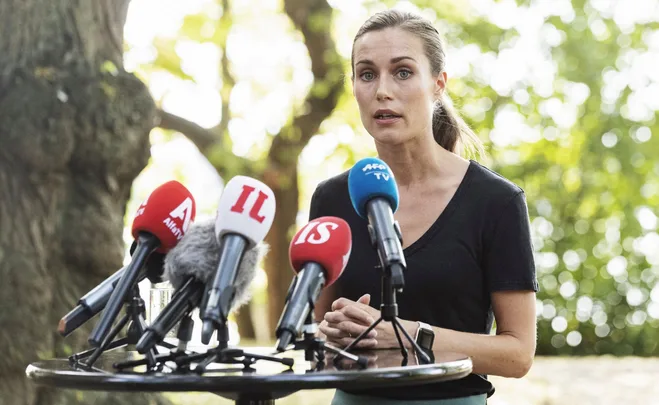Inherently, people tend to enjoy letting their hair down every now and then. The basic human desire to party doesn’t discriminate—whether you’re a university student at O-Week or the CEO of a major company.
Finland’s Prime Minister, Sanna Marin is case in point. Late last week, a video of the 36-year-old dancing animatedly at a party with close friends went viral across the internet. The ensuing media storm and public commentary has been relentless.
While some defended her actions by saying she’s just like anyone else who wants to let their hair down after a long week (relatable), others have condemned the move as irrational and damaging, particularly because it coincided with Russia’s ongoing attack on Ukraine, which has prompted Finland and Sweden to apply for NATO membership.
Both arguments have dominated headlines for several days now—group chats have exploded with debate, experts have weighed in and the PM herself has even issued a statement saying she will take a drug test to prove there was no illegal activity involved.
“I spent the evening with my friends, partied, even in a rowdy way, danced and sang. These videos are private and filmed in a private space. I resent that these became known to the public,” the 36-year-old told media.
“I spent a night with my friends. We just partied, also in a boisterous way. I had some time off and I spent it with my friends. And I didn’t do anything illegal.”
No matter the side of the debate you’re on, the video raises an important question: Why was a woman’s morality so quickly scrutinised after doing something so many of us do? If a male in the same position of power did the same thing, his actions would likely be the subject of funny banter.
It doesn’t take much to prove the the point. In the exact same week Marin’s video went viral, Scott Morrison’s distinctly more problematic and questionable actions (appointing himself to minister several major government departments while he was in office), was exposed.
While the former PM was blasted by many, his actions also became the subject of hundreds of memes that made light of a troubling situation. Morrison himself joined in.
It’s interesting then, that Marin’s actions have been taken so seriously, and that she was obliged to front media and justify why she decided to have fun with her friends on a weekend where she had no official duties or meetings. Looking at the bigger picture, what does that say about society’s expectations of women in power?

There’s no doubt Marin’s gender has been a focal point to her career in politics. Read any international news article about her and you’ll likely notice her referenced as a “female Prime Minister”. She even said so herself in an interview with Vogue in 2020: “In every position I’ve ever been in, my gender has always been the starting point—that I am a young woman.”
Marin became Prime Minister in 2019 aged 34—the youngest PM in the country’s history, and her leadership has had a major impact on many people, particularly women, across the nation.
In the wake of the viral video, Nordic women have showed their support for Marin by sharing videos of themselves dancing and partying with their friends alongside the hashtag, #solidaritywithsanna.
And despite the backlash from critics and the media storm surrounding it, general public opinion of Marin in Finland continues to be largely favourable.
Speaking to Associated Press, a Helsinki pensioner, Jori Korkmansaid, said the PM had “taken [a] very difficult job during a very difficult time She has made a first-class job… what she’s doing in her free time, that’s not our business.”
A Nordic student, Pyry Jantahuhta added that the video’s revelations about Marin’s private life were, “all right”.
Meanwhile, Marin herself summed it up: “I hope that in the year 2022 it’s accepted that even decision-makers dance, sing and go to parties,” she said to media.
“I have a family life, I have a work life, and I have free time to spend with my friends. I’m pretty sure that’s the same as many people my age. I hope that’s accepted. We live in a democracy and in elections, everyone can decide these issues.”










